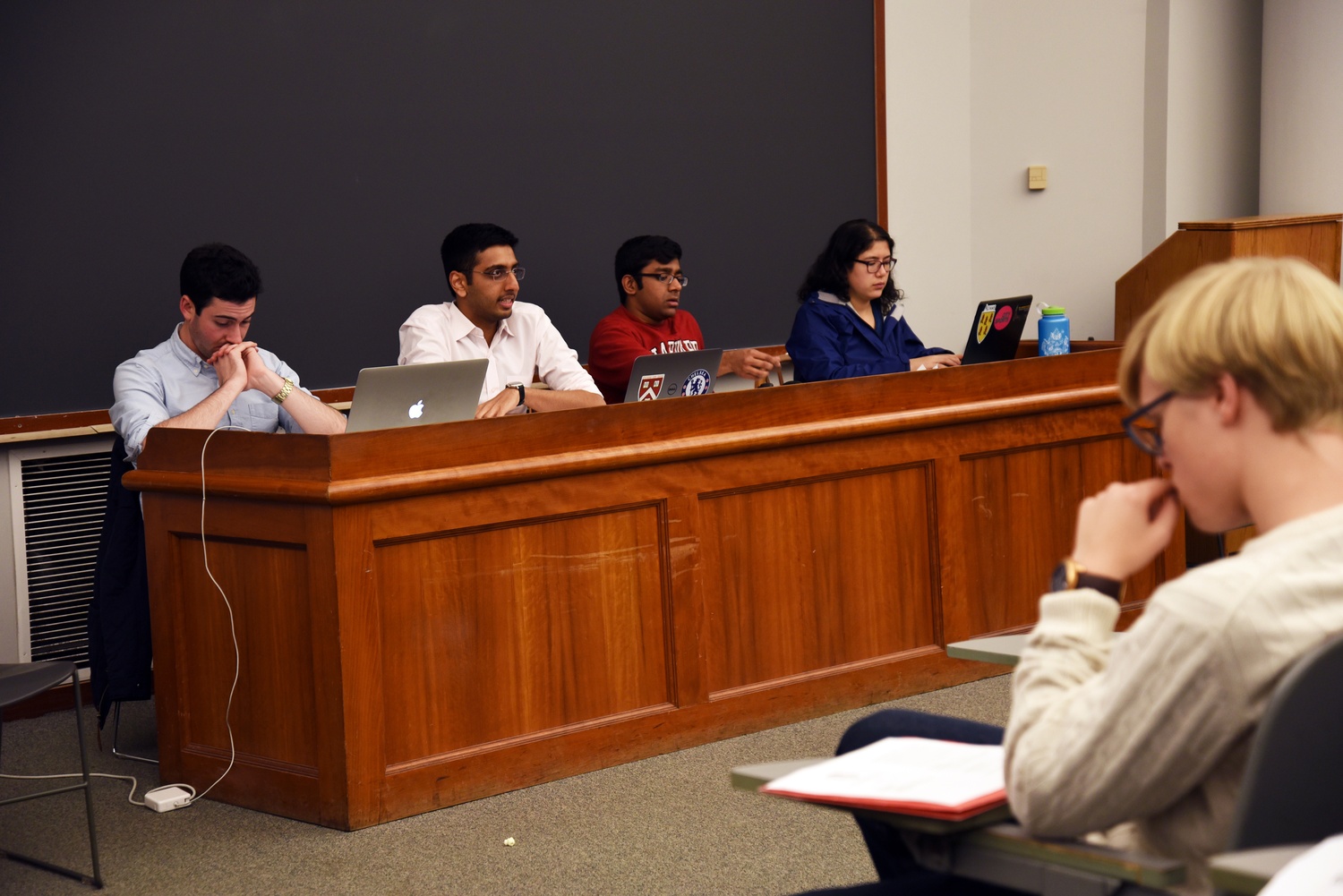
News
Summers Will Not Finish Semester of Teaching as Harvard Investigates Epstein Ties

News
Harvard College Students Report Favoring Divestment from Israel in HUA Survey

News
‘He Should Resign’: Harvard Undergrads Take Hard Line Against Summers Over Epstein Scandal

News
Harvard To Launch New Investigation Into Epstein’s Ties to Summers, Other University Affiliates

News
Harvard Students To Vote on Divestment From Israel in Inaugural HUA Election Survey
Looking To Prevent Assault, UC May Change Finance Rules

The Undergraduate Council discussed a change to its Finance Committee’s rules for funding student groups on Sunday—a policy representatives hope will help prevent sexual assault on campus.
A draft of the policy that representatives discussed on Sunday looks to incentivize student group participation in sexual assault training. Specifically, student groups whose members attend training workshops with Harvard’s Office of Sexual Assault Prevention and Response or with the peer counseling group Consent Advocates and Relationship Educators would be eligible for financial incentives through the Council’s grants process.
At least half of student group members would need to attend the training workshops for the group to receive the proposed benefits.
Following the recent release of survey results that detailed an incidence of sexual assault at Harvard that administrators deemed “troubling,” sexual assault prevention was an issue at the forefront of the UC’s presidential elections. Shaiba Rather ’17 and Daniel V. Banks ’17, who were named the Council’s president-elect and vice president-elect on Thursday, vowed in their campaign to implement a sexual assault bystander intervention program and advocate for Harvard to adopt an explicit affirmative consent policy. The Council also voted last week to give a four-pronged set of recommendations to one of the University’s task forces on sexual assault prevention.
One losing UC leadership ticket—William A. Greenlaw ’17 and William F. Morris IV ’17—had campaigned on creating financial incentives for student groups to attend sexual assault training workshops.
The version of the policy changes presented at the Council’s general meeting on Sunday, authored by the Finance Committee, is a draft. Representatives will detail proposed funding incentives in the coming weeks and intend for them to go into effect next semester.
Other than sexual assault prevention, debate about undergraduate social spaces and whether or not Harvard should provide more of them dominated this year’s election season. A failed referendum sponsored by the UC sought to transform Pusey Library into a social space.
In other business, the UC voted at the meeting on Sunday to create a “party rental kit” service for students. The party kits will include tables and ping pong balls for beer pong, as well as speakers and cups. Representatives said the service looks to make it easier for students to create their own social spaces.
Jullian A. Duran ’18, a Leverett House representative and one of the proposal’s sponsors, said administrators had criticized the proposal on the grounds that it would implicitly encourage students to participate in drinking games. Duran said he has spoken with some student Drug and Alcohol Peer Advisors, though, who were supportive of the idea.
—Staff writer Jalin P. Cunningham can be reached at jalin.cunningham@thecrimson.com. Follow her on Twitter @JalinCunningham.
Want to keep up with breaking news? Subscribe to our email newsletter.
